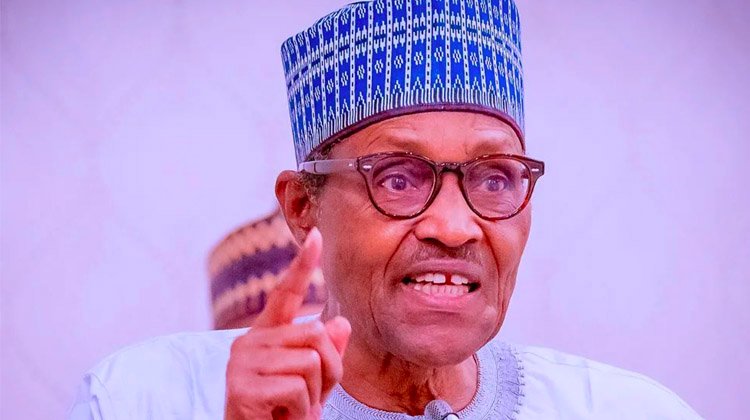
Major General Muhammadu Buhari’s regime will formally end midday on May 29, 2023 after eight years in power. While seeking the highest office in the land in 2014, the president vowed to revamp the economy, curb corruption and improve security in the country. Historians in years to come would determine through programmes implemented, archival records and media reports the extent of the realisation of his avowal and the value this regime has added to the well-being of Nigerians between 2015 and 2023. In essence, the present government is going to be defined by the policies it enabled or failed to enable and decisions taken or neglected to take while in power.
The president reiterated the promises while seeking re-election in 2019. He specifically highlighted insecurity, especially the menace of the terrorist organisation, Boko Haram, that had been Nigeria’s Achilles heel since 2009. He promised to improve the economy through a number of policies and programmes that would enhance productivity and diversify the economic base of the country, while attracting more foreign direct investment. The president also promised not to relent in the fight against corruption. Importantly, the president made a strong commitment in his inaugural address for the second term to lift 100 million people out of poverty in 10 years.
Notably, what is not in doubt is that the regime is going to be judged more on the three programmes of action it enunciated at inception in 2015 viz: Economy, Corruption and Security. However, it is a fact that no administration can be adequately evaluated until many years after leaving office, otherwise, the populace would be in a haste to label an immediate past administration as better than the one in place. Indeed, it takes years of critical assessment of the utilitarian value of the programmes of any government to determine how history would remember such administration.
Although, history can sometimes be cruel to history makers, there is no doubt that participants, in whatever form and shape, in any government are history makers and ought to be concerned about their place in history or how history will remember them. However, it would seem that the officials of the present regime are just not interested in how history will remember them going by their pronouncements and the take it or leave it attitude (or they just do not care).
Prior to the 2015 elections, many Nigerians fell in love with the president. Stating the reasons he was so desired in 2015 “na old news be that,” apology to Fela Anikulapo Kuti. Suffice to say that he was the saviour that everyone was waiting for and whom the people believe would put an end to the misery and many problems bedevilling the nation.
However, it is rather unfortunate that any serious review of the score card of the government cannot be done now, and it is better left for historians to do in future, as the environment is so toxic that any objective assessment will not fly in the face of the extremist supporters and opponents of the regime.
Unfortunately, there is no reliable opinion poll in the country to help determine the approval rating of the president and the level of performance of the government in the various geopolitical zones of the country. What cannot be denied is the low level of support the president is now enjoying, which is at variance with the overwhelming acceptance in 2015. If you are in doubt, just ask the members of the Manufacturing Association of Nigeria, the Airlines Operators of Nigeria, the unemployed, the parents of students in public tertiary institutions and the victims of kidnapping, banditry and other forms of violent extremism, etc.
It is, however, gratifying that the president contested and was elected in 2015, otherwise it would have been a matter of regret and had it been or be faced with the common parlance “the best president Nigeria never had.” It is in this regard that whatever anyone may want to say, history is bound to be kind to some of the past leaders whose achievements can stand the test of time.
In the First Republic, Sir Ahmadu Bello, Chief Obafemi Awolowo and Dr Nnamdi Azikiwe put in the best expected of them and resting peacefully in their graves as their places are secured in the history of the country. They are revered today just as when they were alive because of the enduring legacies of their governments. Some have attributed the achievements of that era to the nature of the federal constitution in place then. That may be true. When people complain about the unitary nature of the 1999 Constitution and the urgent need for restructuring, it is important to note that it is an improvement on the 1979 Constitution, under which the late governor of Lagos State, Lateef Jakande, administered the state with significant and enduring achievements to his credit.
The 65% of the Nigerian population, who were born after 1980, would only remember President Shehu Shagari as the leader that was deposed in 1983 by the junta led by the incumbent president for taking Nigeria to the economic abyss. Looking at the situation now and making comparative analysis with that period, some commentators have said nothing has changed. What an irony?
Same issue of legacy can be assessed under the regimes of Generals Yakubu Gowon, Ibrahim Babangida and Abdulsalami Abubakar, of course for different reasons and programmes. Their achievements, both tangible and intangible, are legendary and stating them here ‘na old news’. However, it is probable and expected that Nigerians would say what was delivered in terms of infrastructural facilities did not reflect the actual cost expended and fundamental human rights were abridged at will by the military junta. There is little doubt that they left behind legacies that would stand the test of time. General Murtala Mohammed is venerated today due to the landmark achievements of the regime, including the idea of the Federal Capital Territory. He only governed for just six months, perhaps the story would have been different if he had stayed longer.
It is in the light of the above that one will appeal to the president and encourage those that love him to remind him that although, the exit date is fixed, there is still sometime left to do more than the infrastructural development being talked about—even without adequate electricity which is a major setback—and leave behind an enduring legacy and not legacy of ashes. He should not be satisfied with just going back to Daura to tend his cattle. There are many low hanging actions he can take (in terms of policies that would remain in the minds of the people) between now and May 29, 2023 to ensure that posterity and history are kind to him.
Among others, the president can be visible in the ongoing constitutional amendments. Importantly, devolution of powers to the other tiers of government can be initiated and followed through by successive regimes. Nigeria deserves multi-level policing; this is desirable and operationally expedient as part of a pragmatic national security strategy. The regime can initiate population control measures. The president can show courage in handling the economic crisis facing the country by stopping the government’s reliance on the Way and Means of the Central Bank of Nigeria.
The regime can also ensure the harmonisation of the country’s multiple exchange rates to curb speculation and round tripping. Furthermore, a systematic fuel subsidy removal that will incorporate social protection programmes for the needy can be instituted. Moreover, the CBN should be discouraged from the ineffective extra monetary policies it is pursuing without tangible results and stop the unsustainable economic interventions that are unrealistic. For instance, at the last count, many that took the agricultural loans are in default, not repaying the loans as and when due but using the funds to marry new wives, buy houses and foreign currencies. They understand Nigeria and perhaps know they can get away with such illegality.
Meanwhile, the president can order immediate resolution of the lingering strike by the Academic Staff Union of Universities and other unions in the tertiary institutions, which have resulted in the closure of universities for more than six months. It is not too late to take action against the criminals disturbing the citizens and hiding in the bushes all over the country without repercussions. After all said and done, it is pertinent to remind that Nigeria has been kind to the president and his generation, so it is imperative that he ought to reciprocate such kindness and love. And as the popular adage goes, “To whom much is given, much is expected.”
Oloko, a policy analyst, writes via [email protected]





